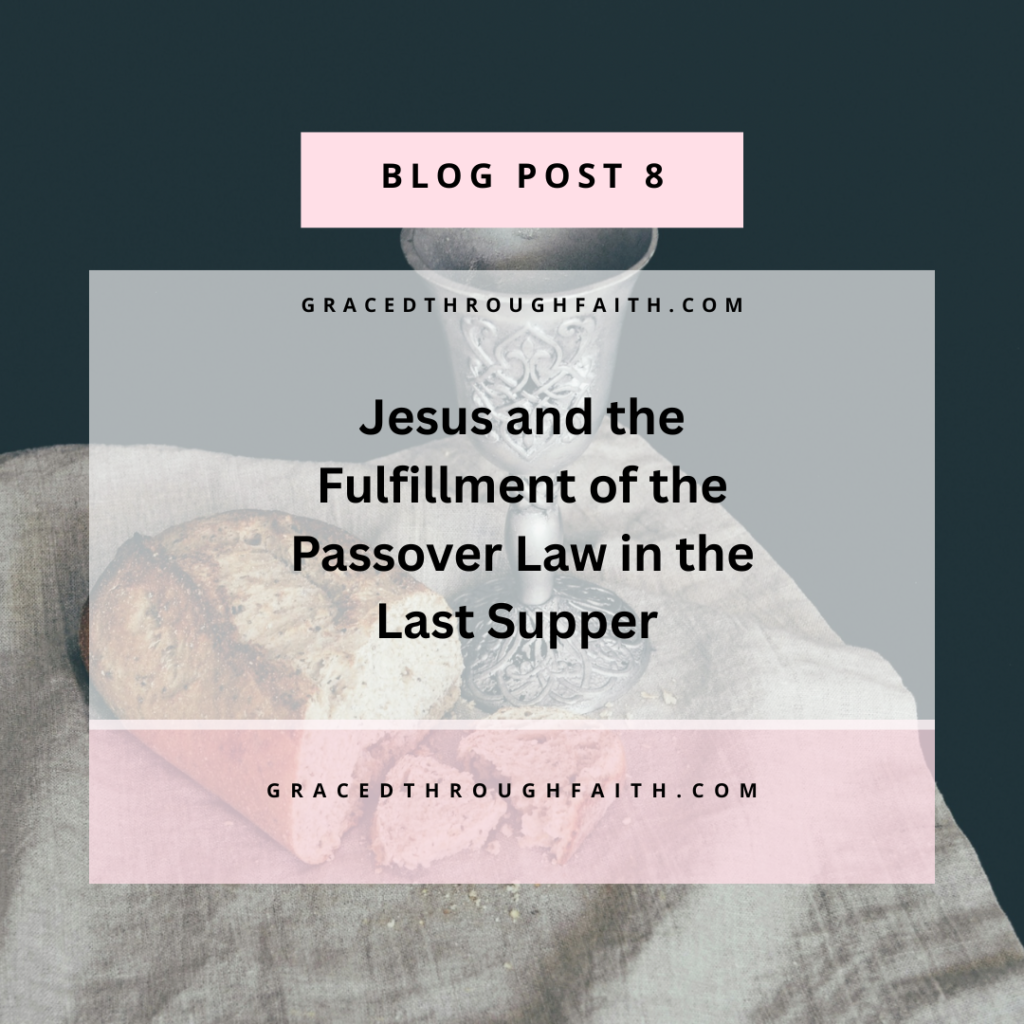
The Last Supper is a significant moment in Jesus Christ’s life. It was the final meal He shared with His disciples before His crucifixion. This meal is not only an emotional farewell but also marks the fulfillment of God’s plan for salvation. For Christians, the Last Supper has deep theological meaning, especially in relation to the Jewish Passover. During this meal, Jesus demonstrated how He was the ultimate fulfillment of the Passover law, establishing a new covenant between God and His people.
In this blog, we explore the connections between the Passover law, the Last Supper, and how Jesus fulfilled its spiritual meaning.
Understanding the Passover Law
The Jewish tradition of Passover (Pesach) remembers the Israelites’ deliverance from slavery in Egypt. In Exodus 12, God provides detailed instructions for the meal. The key elements of the Passover include:
- The Lamb: A lamb without blemish was slaughtered, and its blood smeared on the doorposts to protect the Israelites from the death plague.
- Unleavened Bread: The Israelites ate unleavened bread, symbolizing their quick departure from Egypt and their separation from sin.
- The Lamb as a Substitute: The lamb’s death spared the Israelites’ firstborn from death, acting as a substitute.
- Bitter Herbs: These herbs reminded the Israelites of their bitterness and suffering in Egypt.
- The Unleavened Bread: The absence of leaven symbolized purity and holiness, marking the Israelites’ freedom from sin.
Passover was not just a ritual of remembrance but also a forward-looking act, anticipating the deliverance through God’s salvation plan. It was at this moment that Jesus revealed the fulfillment of the Passover law.
Jesus as the Fulfillment of the Passover Lamb
When Jesus shared the Passover meal with His disciples, He was not merely participating in a tradition. He was about to become the true Passover Lamb, completing the entire sacrificial system.
In John 1:29, Jesus is called the “Lamb of God,” connecting His mission to the Passover lamb’s role in the Exodus. Just as the lamb’s blood saved the Israelites from physical death, Jesus’ blood would save humanity from spiritual death.
During the Last Supper, Jesus redefined the Passover meal, calling Himself the fulfillment of the lamb sacrifice. In Luke 22:19-20, He says:
“This is my body, which is given for you; do this in remembrance of me. This cup is the new covenant in my blood, which is poured out for you.”
With these words, Jesus revealed that His body and blood would be offered as the ultimate sacrifice, just as the lamb’s blood had been a sign of salvation in Egypt.
The Unleavened Bread and the New Covenant
Another key element of the Passover meal is the unleavened bread. For the Israelites, it symbolized their hasty departure from Egypt and their separation from sin. For Jesus, it carried a deeper meaning. As He broke the bread and shared it with His disciples, He said, “This is my body, which is given for you.”
Jesus, being sinless, embodied purity and holiness. The unleavened bread symbolized His perfect body, which would be broken for humanity. In instituting the new covenant, Jesus invited His followers to partake in His righteousness and spiritual purity.

The Blood and the New Covenant
In the Passover meal, the cup of wine traditionally symbolized joy and the promise of future redemption. Jesus transformed its meaning by declaring the wine represented His blood. In Matthew 26:28, He says:
“For this is my blood of the covenant, which is poured out for many for the forgiveness of sins.”
Jesus’ blood wasn’t just a symbol of future hope, it was the present fulfillment of God’s redemptive work. His blood secured forgiveness and established a new covenant based on faith and grace, not rituals.
While the original Passover provided temporary physical deliverance, Jesus’ sacrifice on the cross offered eternal spiritual deliverance. His blood became the ultimate atonement for sin, reconciling humanity with God.
The Fulfillment of the Passover Law: Jesus as the True Passover Lamb
By transforming the Passover meal, Jesus fulfilled its deepest meaning. The lamb, the unleavened bread, the bitter herbs, each element pointed to Jesus Christ and His mission to free humanity, not from earthly slavery, but from the power of sin and death.
Through His death, Jesus became the ultimate fulfillment of the Passover law. His broken body and shed blood secured the salvation of humanity and completed God’s redemptive plan.
A New Covenant of Grace
The Last Supper was more than just a celebration of the Passover. It was the moment when Jesus Christ redefined the meaning of the meal and fulfilled the Passover law in the most profound way. Through His broken body and shed blood, He established a new covenant based on grace and faith, not on the law and rituals of the old covenant.
As Christians, every time we partake in the Eucharist or Lord’s Supper, we remember and reflect on the sacrifice of the true Passover Lamb. Jesus’ fulfillment of the Passover law not only freed us from the bondage of sin but also reconciled us to God, offering the promise of eternal life.
Great insights!
Thank you Brianna. God bless